How To Design Your Life From Childhood. Probably. Maybe.
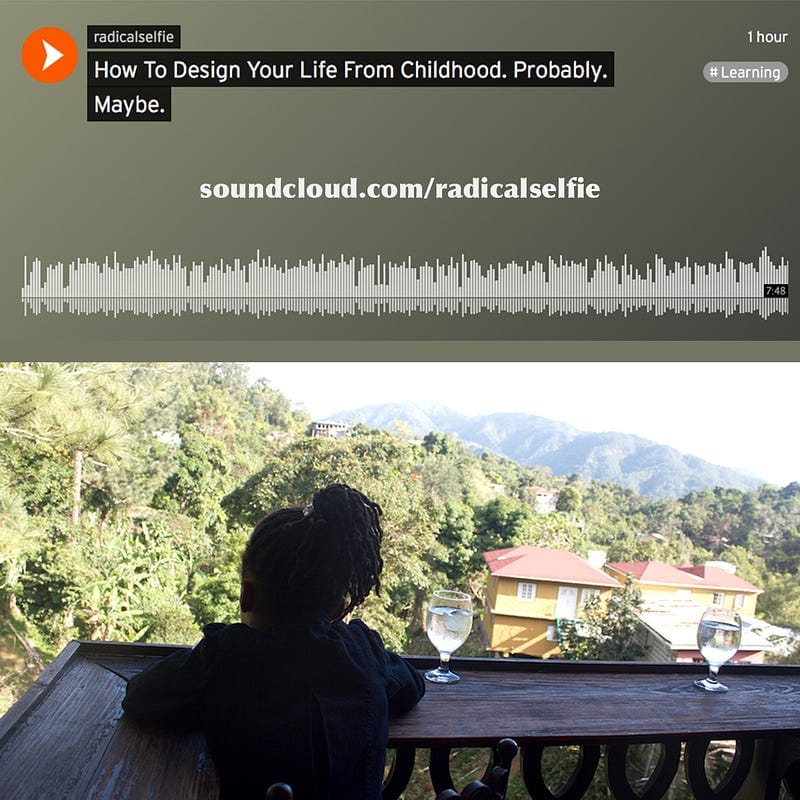
Since appearing on The Steve Harvey Show to discuss parenting, I’ve gotten a barrage of questions about what our children do all day, since they’re not sitting in classrooms. This is an example of what a learning experience from an unschooling curriculum might look like with a 12-year old. Our daughter is interested in voice acting (among other things), so I’ve “hired” her to read some of my personal essays about life learning, parenting, and self-expression. The last essay I wrote, she re-wrote so that she could convey it in first person narrative. I followed her lead and wrote this one in that format. I also gave her time to suggest changes to any of the wording she didn’t agree with or feel comfortable saying. Here’s our final combined effort — both the audio reading and the written version. Enjoy!
“Stop setting goals. Goals are pure fantasy unless you have a specific plan to achieve them.” ~Stephen Covey
Recently, my mother had a change of heart about something she had believed for a very long time. Unschooling does that to people — and it’s actually a really good thing.
It may sound odd, or maybe even crazy, but Mom completely changed her mind about the importance of planning. She recognized, through months of focused self-inquiry, that the most relevant and rewarding things she had accomplished in her life were largely achieved not through a specific plan, but through preparedness.
For mom, it wasn’t a step-by-step strategy that got her to the point where she feels on track with her goals and her beliefs. Instead it was a combination of things — life skills actually — that she intends to expose my sister and me to in childhood so that we know how to lead ourselves as we get older.
Those specific skills, as Mom sees them, are:
· A strong sense of discernment
· Continued exploration of her authentic self & how she wants to show up in the world
· Clarity about how she wants to feel each day
· A vision for her life in terms of how she can serve and create community
· And confidence in her ability to see and seize opportunities as they show up
Those skills are often addressed and defined in adulthood, or settings that focus on adulthood (like later high school years and for some, college), but my parents believe that these skills — life design, knowledge of self, discernment, self-expression, and even visioning — should be nurtured during childhood years.
In other words, these skills don’t need to happen with a guidance counselor junior year of high school. Or when someone is preparing to go out into the real world. The real world exists the day a child is born, and with mindful attention, respect for children’s rights to actively participate in the design of our own lives, adults can help us to get clear and confident about what it means to design the lives we feel we want.
And, in case you’re thinking, “how can my child design their lives when they’ve really just started living and have no real idea of who they are and how the world works” — keep listening, because in this case, it’s not about sticking to any plan or even the design.
Instead, it’s about exposure to the process, and giving plenty of time (years, in fact!) to help us process, understand, and utilize the skills of time management, visioning, goal accomplishment, and flexibility in the how we go about achieving what we want.
One of the best parts about unschooling is having the opportunity to be exposed to real world, real life, life skills, and not just the information that some governing body thinks all kids should learn.
My parents will tell you themselves that they believe that childhood is important; sacred even. They also understand though, that children are less children every day; in other words, my parents aren’t raising children; they are raising adults. The goal is to prepare us to thrive in adulthood and all the years leading up to it, which is a very different lens than simply focusing on childhood.
In preparing us for adulthood, my parents don’t believe in rushing us through childhood either. They believe in helping us gain our own understanding of how to integrate learning into every aspect of our lives, which includes exposure to some of the skills we’ll need in adulthood.
And there are many ways to do this.
For example, we use our entire community as our learning space, and our parents involve us in the details of things like signing leases when we travel to new cities for short-term living, understanding the details of our cell phone contract, knowing how utility bills are generated, visiting shops and asking questions about processes and profits, and just general looking at the entire world (in real life and virtual) as part of our learning village.
The other thing we’ve been doing lately is what Mom calls life design.
Basically, life design is where my sister and I are exposed to things like scheduling, time management, task management, the consequences of failing to follow through — the same skills Mom said she had to learn in adulthood from examples of people like Oprah Winfrey, Tim Ferriss, Brendon Burchard, Kadena Tate, Danielle LaPorte, and others who basically teach people, either by example or training, how to manage adult life from both emotional and strategic spaces.
Of course, at twelve and ten years old, Sage and I aren’t going to need the same types of skills that my mom would need in her thirties. And I won’t even care about a lot of the things that she would care about since we’re in different life stages.
But, I trust that she respects where I am in my life, and that she and dad are being smart and observant about what my sister and I can use in our lives right now, so I am interested for those reasons.
Thankfully, the only prerequisite is interest, so if you are interested in exploring life design for your children, and you think they might be interested too, let me give you the broad strokes version of what mom and I did to create that space.
First, Mom asked me to think about, and then describe to her, how I see myself and my life ten years from now. So, basically what’s up with me at 17 years old. This wasn’t the first time we’d done this “me in the future” thing, so I didn’t have any anxiety around it at all. There was also no pressure to be specific or too detailed, which made the process fun.
Mom wrote out my vision in bullet points, and then showed it to me. She asked me to read it out loud, and she reminded me about some of my current interests, and asked me whether I saw myself continuing to explore those interests a whole decade from now.
She also asked me to be honest by NOT putting anything on the list just because I thought her or Dad would want to see me doing that thing. That process helped me get comfortable with the list, meaning that I didn’t feel like I was forgetting anything.
After I got comfortable with my “10 years from now” list, we did the same thing for my life five years from now.
Then we did it again for two years from now. Then, we did it again, this time focusing on how I saw my life by the end of this year.
From there, we looked at what it might take (emphasis on “might”) for me to achieve my 10-year vision, and we revised the 5, 2, and 1 year visions to align with my 10-year vision. Lastly, we turned took each of the 1-year vision bullet points and talked about ways to add actionables (things I can do, and not just think about) to make those things happen in my real life.
Can you see the mechanics of that process now? Basically, she showed me how my actions this year might influence my vision for all the way up to a decade from now.
Once that made sense to me, then we went on to look at my monthly and weekly goals, which we do often anyway. The process was helpful for me because having asked Mom to help me revise my weekly schedule, I now feel good that whatever I’m doing with my time every day is clearly connected to what I want to be doing with my life next year, five years from now, and even ten years from now.
It’s simple, it’s fun to imagine, and it’s useful for me as I plan my days and my weeks with the intention of creating a life that I find fulfilling and fun. Try this out with a child in your life, and then come back here to comment and tell me or Mom how it went.
If you’re interested in learning more about unschooling, check out mom’s free video series at: bit.ly/howweunschool.
Originally posted on radicalselfie.com/lifedesignkids

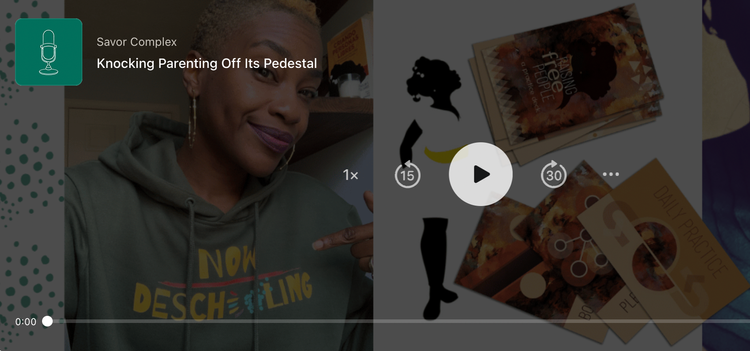
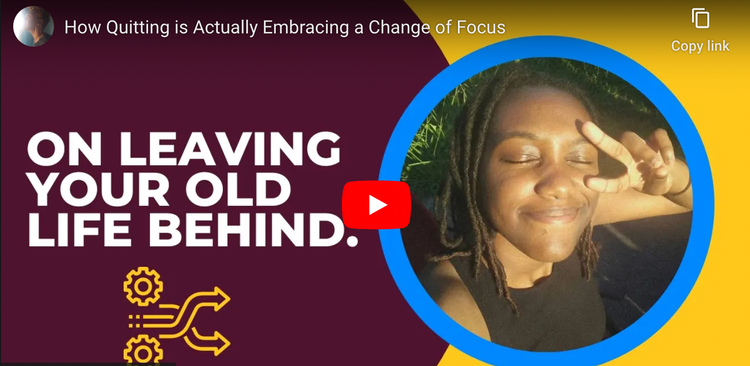
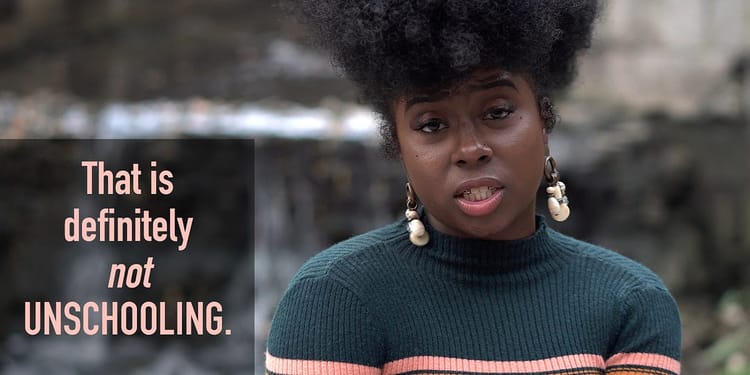
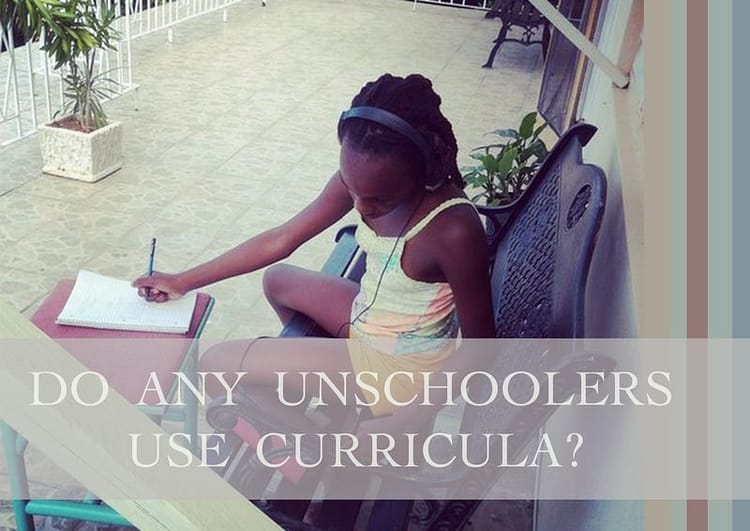

Member discussion